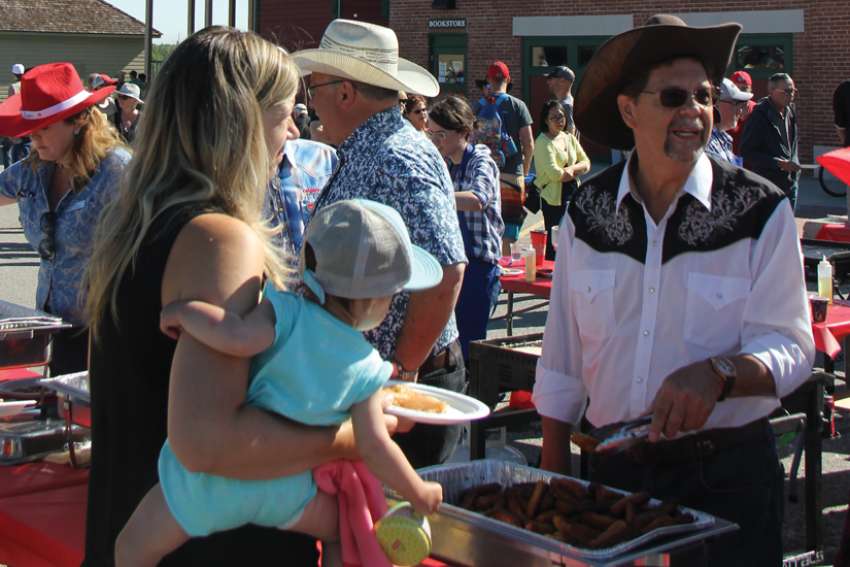Freud may have been thinking of automata or mechanized figures that were being introduced in his time, where some observers literally passed out when they saw these mechanical creatures suddenly come to life. Today we are seeing a similar phenomenon appear in robotics and in film, where lifelike avatars are beginning to replace people in a number of contexts.
In film studies we refer to this as the uncanny valley, that space where a figure is almost but not exactly human, producing an experience of unease and discomfort. Readers may remember the film The Polar Express, which used computer-generated animation over live-action actors, and which bombed at the box office precisely because viewers couldn’t accept the images as either real life or animation. In the uncomfortable space between, viewers turned away.
In many ways COVID-19 has had the same uncanny effect on everything within our culture: from meetings to award ceremonies, business to education. And this is certainly true for our Canadian universities and colleges, most of which have gone virtual. This has meant approaching many of our daily routines like a science fiction script.
Everything is almost real, but not fully. My colleagues are there, and yet they’re not. We are connected, literally, and yet we somehow feel that a chasm, if not a valley, separates us. It’s deeply unsettling. Pope Francis, in Fratelli Tutti, argues that this pandemic has exposed “our false securities.” As the pontiff puts it, “For all our hyper-connectivity, we witnessed a fragmentation that made it more difficult to resolve problems that affect us all. Anyone who thinks that the only lesson to be learned was the need to improve what we were already doing, or to refine existing systems and regulations, is denying reality.”
For me personally, reality isn’t what it used to be. Little did I imagine that we could, much less would, actually transition our university from a fully in-person delivery model of our courses to an online environment with only two weeks’ notice. And once done, little did any of us expect that we would be preparing for an entire term of online delivery, where our staff and faculty would be sent home, our campus buildings disinfected and closed, and all of our in-person events cancelled. And yet here we are. It’s uncanny to say the least.
For St. Mary’s University this has meant cancelling key events such as our annual Stampede Breakfast where literally thousands of people from the community descend on our campus as part of the annual Calgary Stampede celebrations (which were also cancelled for the first time in a century). Just as difficult for our athletes has been the complete suspension of our sporting season, the closure of our fitness centre and many of our training programs.
Another key impact has been on the temporary suspension of the President’s Volunteer Team, where at times hundreds of students have joined me in monthly charitable events, from volunteering at soup kitchens preparing meals, to building homes for Habitat for Humanity. The PVT was a way to put our values into action, to reach out to those most in need and to remind ourselves that a university education is holistic — mind, body and spirit. Indeed, the Catholic intellectual tradition is outwardly focused, nourishing ethical and compassionate citizens, and championing social justice. For this to be halted is significant.
So perhaps the biggest change has been to our specifically Catholic mission. St. Mary’s prides itself on the community it has built and the way we model our identity in connected ways. Most recently, our Catholic Women’s League Chair for Catholic Studies lecture, which typically attracts hundreds of participants, had to be moved online. Our guest speaker this year, Sr. Nuala Kenny, MD, agreed to deliver the annual lecture, and two half-day workshops, entirely online.
Sr. Kenny is renowned for her work on the sex abuse crisis in our churches, and together with our chancellor, Bishop William McGrattan, she was able to deliver a powerful address. Participants used a popular social media platform to sign in and we were able to approach the topic with tact and sensitivity. Everyone who participated praised the courage of the speakers and the importance of the topic.
Perhaps most different of all has been the change to our weekly liturgies. This, more than anything, has felt like a loss to all of us. Where once we gathered in community at least twice a week, suddenly the campus was closed and everything moved online. We still used our chapel to celebrate the Mass, but with only three or four of us in attendance. In a few weeks time we will celebrate the beatification of Fr. McGivney in the hall on our campus named after him. Officially the largest meeting space on campus, no more than 20 people will gather while the Mass is broadcast live, each of us separated by a Plexiglas shield.
It is strange to say that even though our faith invites us to celebrate a spirit greater than our understanding, we still love to do so face-to-face, and in the absence of doing so we feel our community is somehow diminished. It is all the more reason why we need to work harder at celebrating our connections, at staying in touch even though this uncanny valley lies between us.
Our university — and our community by extension — will not be diminished by this fragmentation. On the contrary, we understand that we are Fratelli — and sorelle — Tutti: brothers and sisters together in Christ. There’s no denying that reality.
(Turcotte is president of St. Mary’s University in Calgary.)


